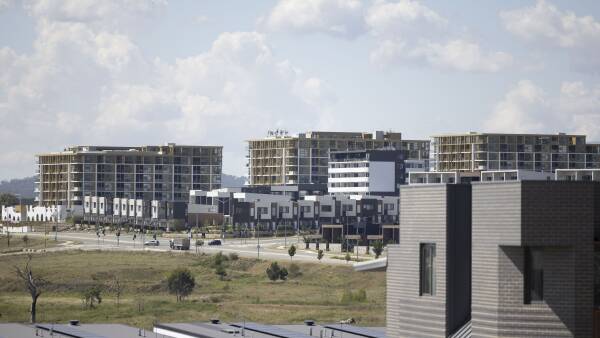URGENT UPDATE: New data reveals that nearly all Hunter councils are successfully meeting the New South Wales government’s expectations for development application approvals. This significant achievement comes as the state government intensifies its focus on fast-tracking housing projects across the region.
According to the latest figures from the Department of Planning, councils such as Newcastle, Muswellbrook, and Upper Hunter are leading the way in efficient assessment timelines. The average timeframe for development applications (DAs) has drastically decreased to just 83 days, representing a 24% reduction in the last financial year. In stark contrast, only 49% of councils were meeting these benchmarks at the start of the housing accord.
The pressure is mounting as the government seeks to expedite major housing projects like Kings Hill near Raymond Terrace and Minmi and Eden Estates on the outskirts of Newcastle and Lake Macquarie. Planning Minister Paul Scully announced today that councils improving their assessment speeds will gain access to a share of $200 million in infrastructure funding.
“Councils that have diligently enhanced their performance can now tap into this significant funding,” Mr. Scully stated. “With councils assessing 85% of all development applications, their role is crucial for delivering the homes we desperately need during this housing accord period.”
The government’s approach combines incentives with strict performance expectations, and the results are evident. The recent drop in assessment timeframes allows builders to commence construction more rapidly, ultimately reducing costs for homebuyers.
Despite this progress, the overall housing approvals in New South Wales still fall short. The Urban Development Institute of Australia (UDIA) chief executive, Stuart Ayres, highlighted that the state only recorded 48,900 building approvals in the year leading to July 2025, far below the target of 75,400 completions. “If we keep at this rate, we will end up approximately 133,000 dwellings behind our housing accord targets,” Ayres warned.
Moreover, approvals for detached houses have declined by 3% over the past year. While infill policies are driving increased apartment approvals, the lack of focus on detached homes poses a challenge for achieving a balanced housing market. “This is not a contest between apartments and houses. NSW needs more of all types of housing to provide affordable options for families and young people,” Ayres emphasized.
As the government implements these changes, all eyes are on Hunter councils to see how they will respond to the increasing demands for housing. The landscape is shifting rapidly, and stakeholders are urged to stay informed as developments unfold.
In summary, New South Wales is at a crucial juncture in its housing strategy, with Hunter councils stepping up to meet new challenges and expectations. The combination of financial incentives and strict timelines may hold the key to resolving the state’s ongoing housing crisis, but only time will tell if these efforts will translate into a sustainable solution for future residents.































































